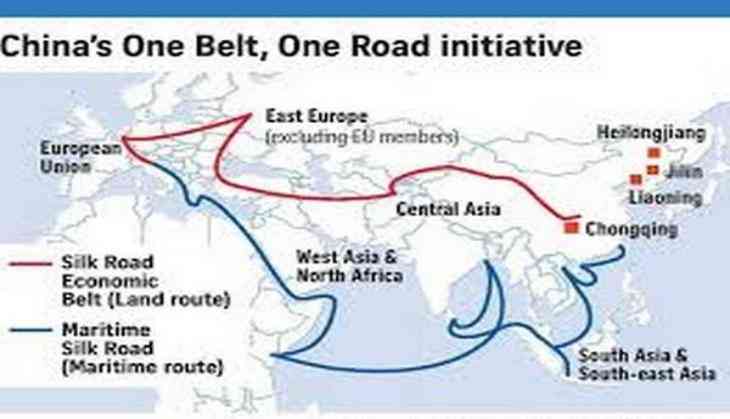
Several European nations are reportedly keen to restrict China's economic-centric geopolitical advance via the multi-billion dollar One Belt One Road (OBOR) initiative over concerns about Beijing attempting a takeover of sorts of the region.
According to an article written by a Pakistan based independent journalist and analyst for the China Policy Institute, Germany, France and Italy are already preventing what they see as a "proverbial Chinese takeover" of Europe, raising fears this could lead to a break-up of the European Union in the not too distant future.
Most European countries, according to Salman Rafi Sheikh are reportedly looking at the experience in Southeast Asia, where Chinese investment and aid has resulted in "neutering the Association of Southeast Asian Nations. Cambodia and The Philippines".
OBOR also known as the Belt and Road Initiative (BRI) is failing to gain any traction in Europe, according to Sheikh.
He says that concerns in European capitals are majorly over the considerable ambiguity and secrecy that surround Chinese projects. There is also a view that several Chinese initiatives in Asia have failed to result in the much espoused 'win-win' claim for recipient countries made by Beijing. Several nations are said to be in deep debt to Chinese bankers.
Sheikh adds, "Eleven countries in the "16+1" are EU members, and there is a concern that the attempt to bilateralise relations in this framework could affect the internal cohesion of the EU and risk divisions among members that compete for Chinese attention."
Germany, he says, is promoting the need for a legislation to prevent a draining of technology and know-how, and it being replaced by Chinese items. This legislation is currently in the draft stage. French President Emmanuel Macron has said that China's new Silk Roads can't be a project that benefits Beijing alone.
According to Sheikh, if this proposed legislation becomes law, EU member countries would be able to prohibit China from investing in an unbridled way, and also make Beijing to compulsorily share investment-related information with each EU member and the European Commission.
China's focus on Eastern Europe is also a matter of concern to countries in that region. It is now being acknowledged that a great deal of Chinese investment is coming into eastern Europe in terms of infrastructure development, but a significant portion of this is reportedly being reserved for acquisitions, largely because prices for acquisitions are lower and concessions for Chinese investments are high.
There are fears among leading EU countries that if suitable counter measures are not taken, there could exist a case for Chinese hegemonism, which in economic terms would mean a massive trade imbalance between China and the central and eastern European countries.
"Chinese loans are, as can be expected of financial loans anywhere in the world, to serve as Chinese footsteps in Europe through which Beijing will seek to build its influence. This is worrying for countries like Germany because it would ultimately allow China to use its presence in Eastern Europe to reach Western Europe and the EU at large," Sheikh claims in his article.
Secondly, there is a belief that a significant Chinese presence and capital would allow the EU periphery countries to put pressure on Brussels and thus frustrate the EU's bid to develop a common policy vis-a-vis China.
Germany has been calling on Beijing to respect the concept of "one Europe".
Not having a common policy towards China, could eventually result in China succeeding in dividing Europe.
--ANI


